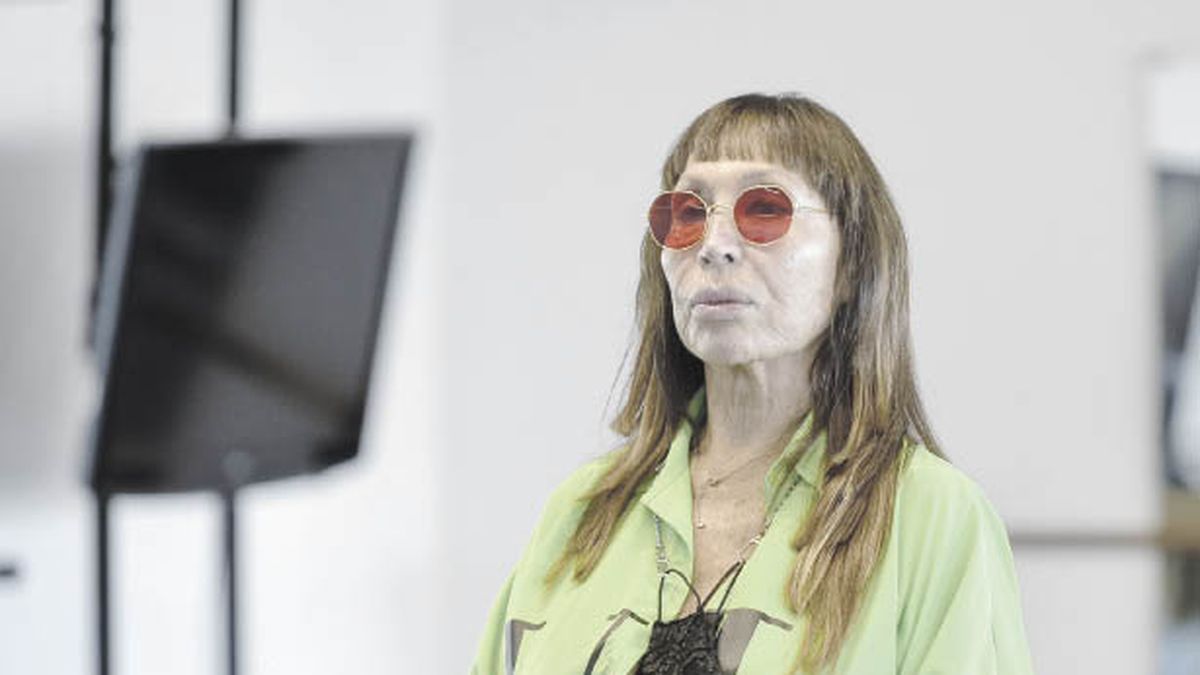The cast of “Julio César” is completed by Marita Ballesteros, Alejandra Radano, Malena Solda, Mario Alarcón, Mariano Torre, Mirta Wons, Vivian El Jaber, Fabiana García Lago and Payuca. It will be presented on Saturdays and Sundays at 5 pm at the CTBA headquarters in Mataderos, Juan B. Alberti 5765. We talk with Moria Casán.
Journalist: How did you build the Roman emperor? Who was he inspired by?
Moria Casan: I am very built for everything to metabolize and go through my body organically. I don’t think I’m going to embody Julius Caesar, I am Julius Caesar, as if they put a chip or the gene in me, and I do. I am not a school artist, I am self-taught, I am not finding the character in rehearsals, I have been since I made the first reading. I am self-managed, I have no methods to incorporate a character, everything flows, it does not influence, without prejudice, without stiffness, without thinking of Shakespeare. In addition, this is a free, avant-garde dramaturgy; to do it you need to have no prejudices, Muscari breaks rules.
Q.: What does it mean to return to the San Martín theater? A return to his childhood?
MC: My dad was a total music lover, with him we had season tickets at the Colón, we also went to the San Martín, the commercial theater and the cinema three times a week. The San Martín is a theater of unusual warmth, everyone is loving to me, from the ticket sellers; I arrive and it is as if an evangelist pastor arrived, a guru. They’re happy that I’m here, and I think it’s because I’m extremely popular and they’re happy.
Q.: How valid is this conspiracy and murder written in 1600? Can the characters be transposed to the present?
MC: I never bring the past into reality, everything is timeless, Shakespeare is timeless, he is the most popular author in the world. I don’t put Julius Caesar in anyone in our reality, we should be in Rome. Of course there is a court of doormats, lackeys, conspirators, and there will always be patrons of power, those who serve power; those whom power weakens and corrupts, but power increases their ego and then lowers them. In all times it is difficult to control power.
Q.: What other themes does that universality of Shakespeare bring?
MC: How the power of the world is made to disappear, the example is the war today, with Putin warning about a Third World War and the United States with Ukraine sending troops. It is incredible that there is war in a pandemic, everything is of an absurd realism typical of the theater. It is a reality fiction, this work is performative and of an unusual power that breaks rules, that reaches where it should go, which is the popular, to mobilize people from the start.
Q.: What can you say about the setting?
MC: It is a great video clip with performative and groundbreaking characteristics. There are many screens but behind, contrary to today’s world where we have screens in front of us all the time. Here they are support, decoration, they are a support without speech, we are the ones who speak.
Q.: What attracted you to the project to want to be part of it?
MC: I am the most disruptive artist in the medium, I was the first woman the English allowed to do “Priscilla” because of my closeness to the LGBT world, when Pepito got off I went up. I did “An inopportune visit”, I did “Three old women” by Jodorowsky at Teatro El Picadero, I have a very strong off, beyond Olmedo, Porcel and the magazines that I headed with Cherutti and Artaza. I was alone in the Astros, there is no reference like me, except for Lapacó, but later he continued with the theater category. I always do everything. Here I will do a function at 5:00 p.m. and then a double function of “Bruges”, like so many other times. I started naked on stage dressed as Chaplin, it was the first striptease and I only had half an hour to prepare, I couldn’t tell anyone about my debut. And when you transcend your body, beauty and youth, you continue if there is something more solid on stage, and that’s how it was, that’s why they hired me 50 years ago.
Q.: What will the public say about this performance?
MC: The public is going to love it, get excited, access a classic that perhaps has respect and distance. And that has to do with how cultural it is in the official theaters, but only in appearance because culture is everything. It’s the street, the sport, what makes your adrenaline fly, the public is going to love it. There is a lot of arrival, it is a neighborhood lust that we are going to send.
Q.: It will be in Mataderos, birthplace of your character Rita Turdero.
MC: Yes, I created it when we were doing “Monumental Moria” with Castiglione on Channel 9 in Romay. It was a panther, there I included the dancers when they were not in fashion, I took Los Wawancó. Many think I’m from Mataderos but I put it because it rhymed with Turdero. However, Mataderos seems like a brutal neighborhood.
Q.: What other character would you have liked to play? What is left for you?
MC: I don’t have earrings or anything I dream about. I do on the fly, the things that are proposed to me, I don’t have something in the pipeline, I’ve never called a producer for something that I’ve been dying to do. They have to offer it to me, I’m dying to continue building myself.
Source: Ambito
David William is a talented author who has made a name for himself in the world of writing. He is a professional author who writes on a wide range of topics, from general interest to opinion news. David is currently working as a writer at 24 hours worlds where he brings his unique perspective and in-depth research to his articles, making them both informative and engaging.




